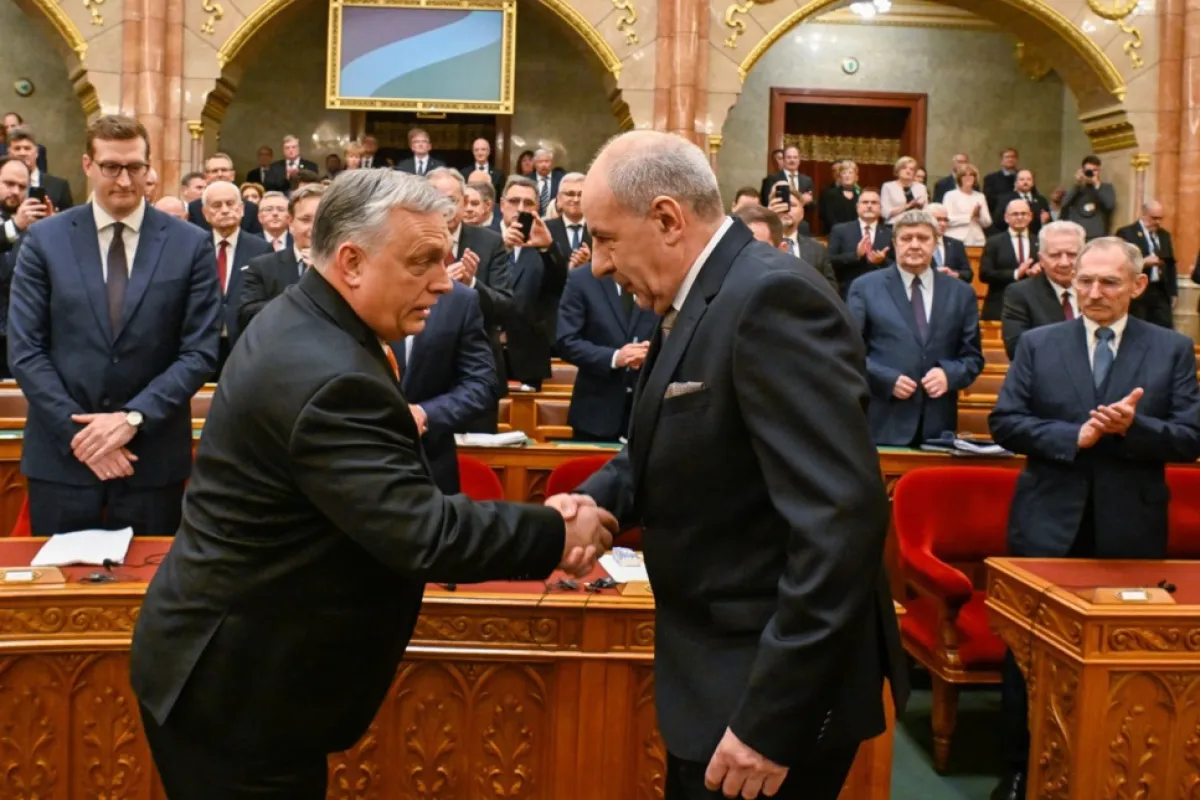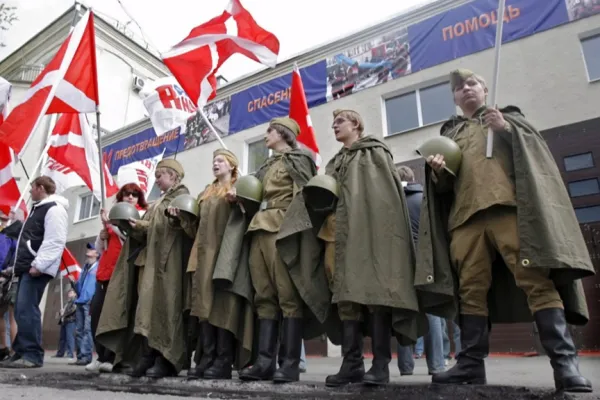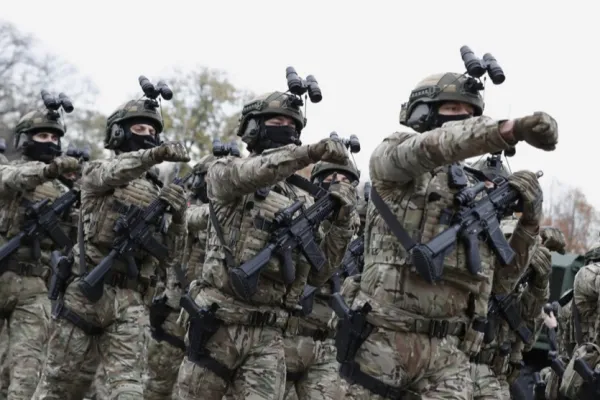Hungarian Prime Minister Viktor Orban has slightly distanced himself from Russia for the first time since the invasion of Ukraine, but he has moved closer to the sovereigntists. This "dance" has very much to do with the interest in a post of European Commissioner.
The pedophilia scandal that spoils Orban’s plans at home
Viktor Orban's thoughts and changes of mind no longer surprise anyone, at least not at the level of the European Union where everyone has finally started to show the "naughty corner" to the troublemaker who is disturbing the class.
Orban's success was primarily due to the massive support he enjoyed at home. Despite his gross sideslips from the rule of law, Hungarians kept voting for him, providing him with an ever-comfortable majority.
However, that support is showing some signs of tearing. Neither the hard and expensive life in Hungary, nor the curtailment of the right to free expression, nor the friendship with the Russians which cost them a bit dear, could mobilize the Hungarians as did the mistake made by the former president Katalin Novac, who pardoned an accomplice in pedophilia. Such a gesture angered even Orban's fundamentalist supporters and they all took to the streets against the government and against Orban in particular. An apolitical rally. The blunder of the former collaborator was not overlooked even by the media totally subordinate to Viktor Orban.
He quickly replaced Katalin Novak with Tamas Sulyok, the former head of the Constitutional Court. But it was not enough to quell the scandal. Sulyok's appointment was contested in the streets by thousands of opposition supporters who are now calling on Orban to have the head of state elected by universal suffrage.
But this is exactly what the illiberal from Budapest does NOT need in the run-up to the elections for the European Parliament and in the run-up to taking over the six-month presidency of the European Union. And how can one get rid of such a serious domestic issue if not by addressing foreign policy issues?
Viktor Orban's sudden change of tone: Russia is not that good
Viktor Orban is currently caught between a rock and a hard place. The rock this time is Russia, given that Orban - the European leader closest to Putin - was unable to prevent either Sweden's accession to NATO or the provision of consistent aid to Ukraine, even if he blocked them for a while. The hard place is the Hungarian nation that belongs to the European family. Since the vote given in the single-chamber parliament in Budapest on Sweden's NATO accession protocol, Orban's speech has been bizarre, to say the least, in total dissonance with what we have been used to until now:
"We agree that Russia's attack on Ukraine is a serious violation of international law. Ukraine should be helped, this is the right attitude. In the case of Hungary, there is also a specific aspect, namely that Hungary does not wish for a common border with Russia . We have bad memories from that time," Orban said at the first meeting in more than a year of the leaders of the Visegrad group in Prague, where Orban was booed upon arrival. The Visegrad group includes the Czech Republic, Poland, Slovakia and Hungary. Orban's statement in Prague did not go uncharged by the new “Koba” in the east.
"We don't see everything through Mr. Orban's eyes. However, contrary to what EU officials insistently claim, Russia poses no threat to countries that are not hostile to Russia and do not seek to become anti-Russian entities. Having said that, concerns about this are unfounded," Dmitry Peskov said.
But the series of statements mimicking a distancing from Moscow continued in Antalya, at the Diplomatic Forum, where the Hungarian prime minister recommended psychotherapy to those calling him "Putin's puppy". Orban claimed that he was not looking at the war in Ukraine through Ukrainian glasses or through Putin's glasses, but through Hungarian glasses: "I have to represent my country and my nation, and I know what the Hungarians’ interest is. If something is good for the Hungarians, I support that thing, if it is not good for them, I oppose it. It is very simple".
From Putin, Orban moves to sovereignists and Iran
And just when you would think that the illiberal prime minister is showing some signs of recovery from the state of absolute contemplation in front of "the East", Orban strikes again by telling members of the Hungarian diplomatic corps that the "Western hegemony is over". Hungary has an interest in remaining a member of the European Union and NATO, "but not in creating blocs. That is why we will strengthen our alliance with other sovereignist countries", said the Hungarian leader.
But what is sovereignism? If we look at the extremist, populist and anti-system parties on the continent, they all talk about sovereignism. There is no clear definition. It is not a doctrine, but it may well replace the notion of "illiberalism" preached by Vladimir Putin, the man whom Viktor Orban admires so much and in whom he founds so much inspiration.
Orban thought that public opinion in Europe would move in his direction, but it was a miscalculation. He played the card of illiberalism within the European Union to the limit and kind of lost. Around the MEPs, with the problems he has at home and an image much too pro-Moscow for the taste of the majority of the Union members, but also of a growing number of Hungarians, Viktor Orban needs to reinvent himself. He is flaunting sovereignism while equally placing Hungary on the "axis of evil" by sending the foreign minister to Tehran. Is Iran a sovereignist state? If so, does that mean that, among other things, sovereignism means providing support to terrorism in the Middle East, particularly the terrorist organization Hamas, and also providing killer Shahed drones to Russia, who is using them against Ukraine? Supporting Yemeni, Syrian, Iraqi and Lebanese militants?
Orban's "dancing" for the post of European Commissioner while protecting the business with China
In fact, Orban is making a political swing before the two major events for the European Union, the European Parliament elections and taking over the presidency of the European Council. 3 years ago, FIDESZ left the European People’s Party and remained with the honor of being unrecognized – that is, unaffiliated. But after the elections he would like to be part of a family. If he wants to join the European Conservatives and Reformists, he must revise his attitude towards Ukraine. And that would explain the Orban’s pacifist tone when he says that "we are in trouble" because since the beginning of the war many countries have talked about "our war", and if the opponent is stronger and occupies territories, Hungary, by virtue of partnerships and alliances with those countries, will find itself on the losing side.
There would also be the option of affiliation with Identity and Democracy, a right-wing and far-right political group created in 2019 and made up of nationalists, right-wing populists and Eurosceptic national parties, but this has a low weight (which could increase after June 9) and is relatively isolated in the European Parliament.
Why would Orban need a European Parliament affiliation? Hungary's economy is in freefall, and Orban, like his friend Putin, is betting on Chinese investment: battery factories, electric cars and major infrastructure projects. The new EU Regulation on Foreign Subsidies can no longer be circumvented very easily, however, and the Commission has already begun to examine the presence of the Chinese state-owned railway giant CRRC in Europe. Government sources in Budapest claim that Orban would like to get the Commission's competition portfolio for Hungary. Let's not forget that in the last 2 years, focusing more on Hungary's veto threats to EU actions against Russia as a result of the invasion of Ukraine, we lost sight of the fact that the same Orban tried to derail any measure concerning China. A competition commissioner post would be useful so that Budapest can quietly continue its policy towards China.
But in order to succeed in Brussels, Orban must maintain his dominance at home. With the economic problems it can't escape and blunders like the one related to the pedophilia scandal, this dominance seems increasingly difficult to maintain.












